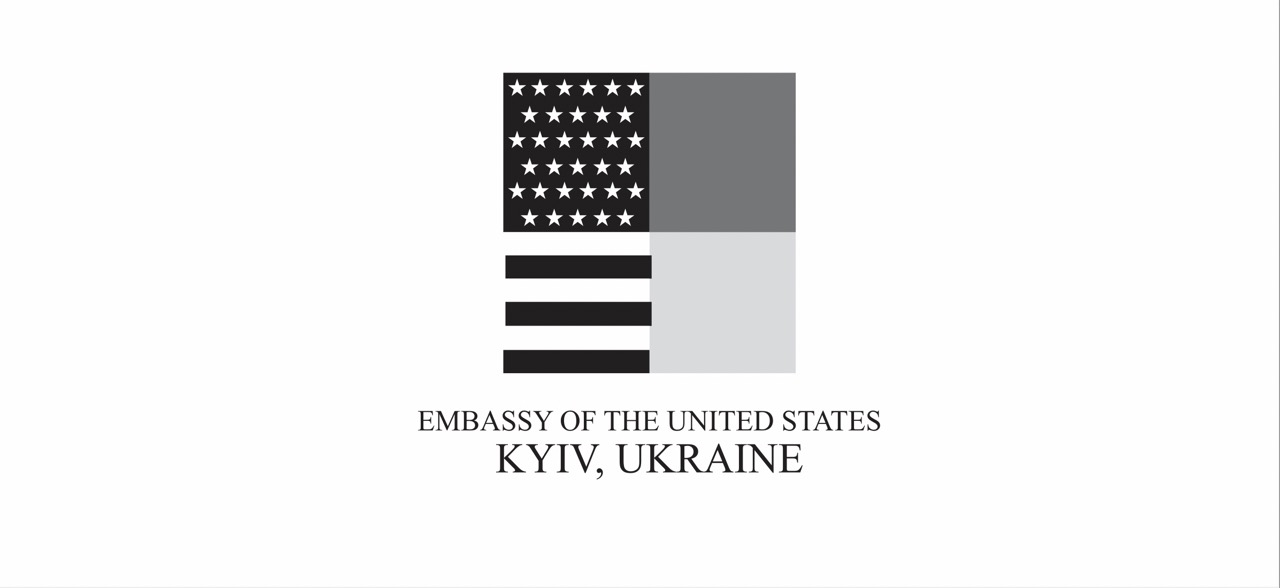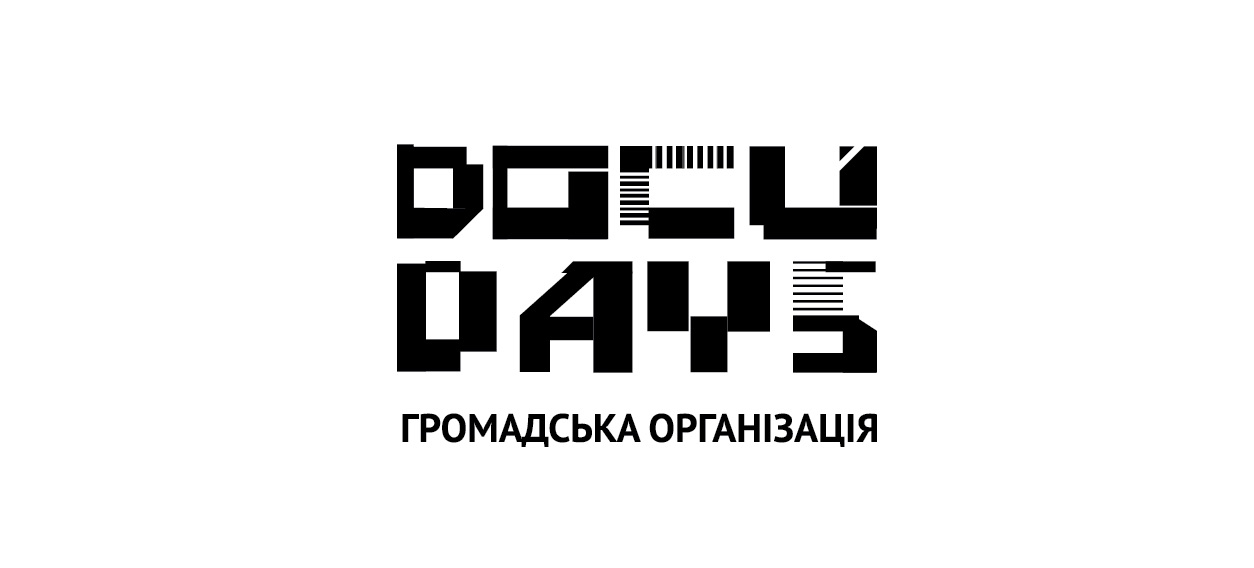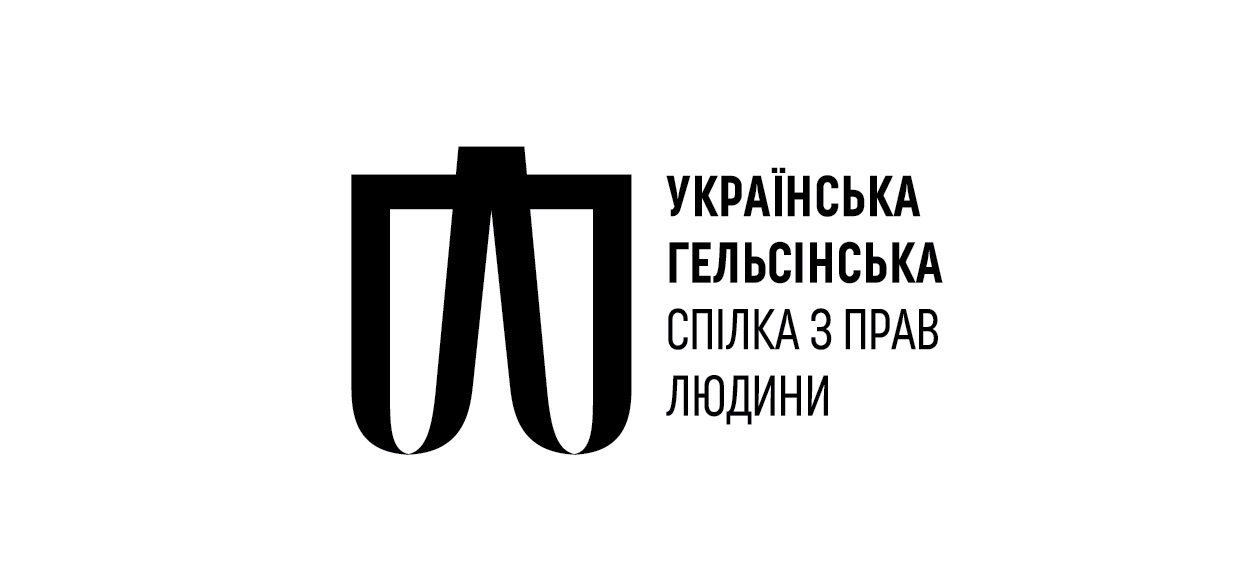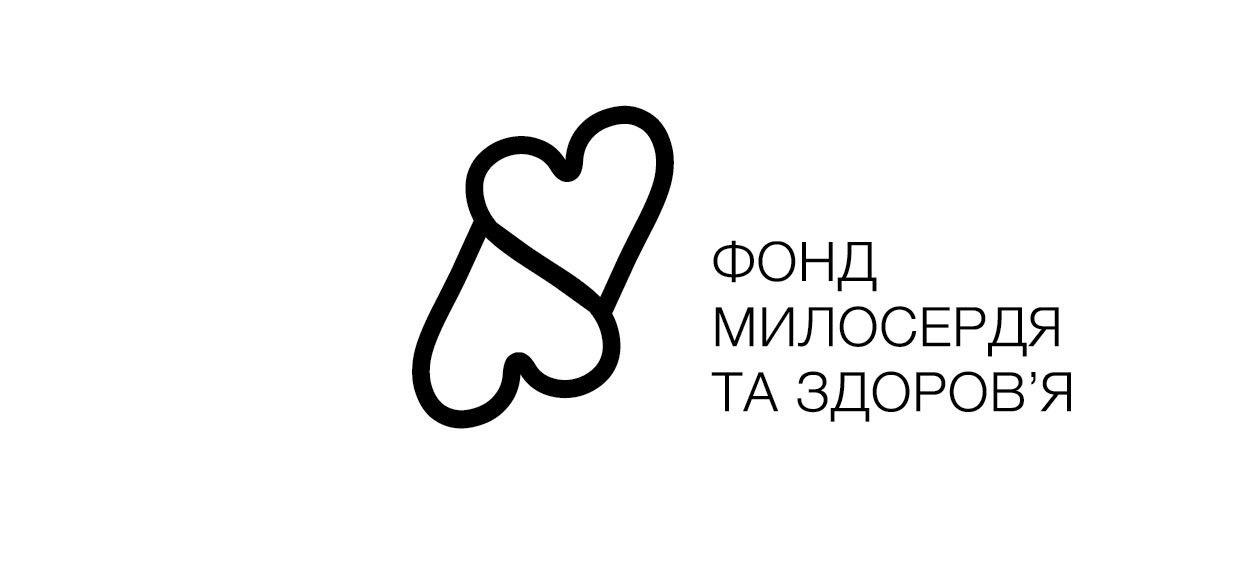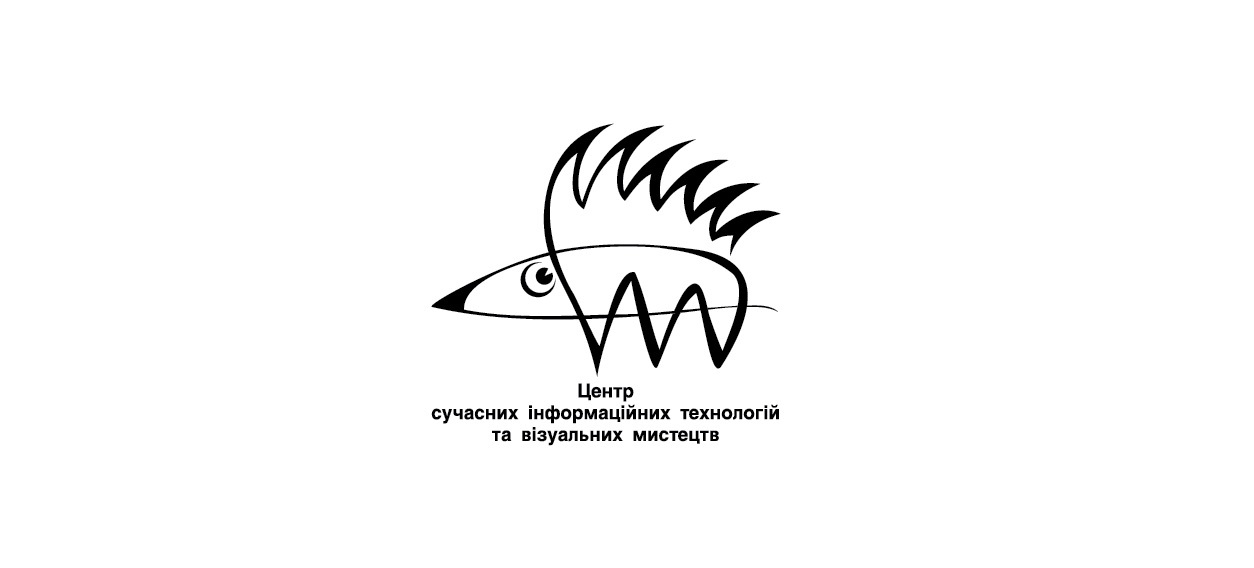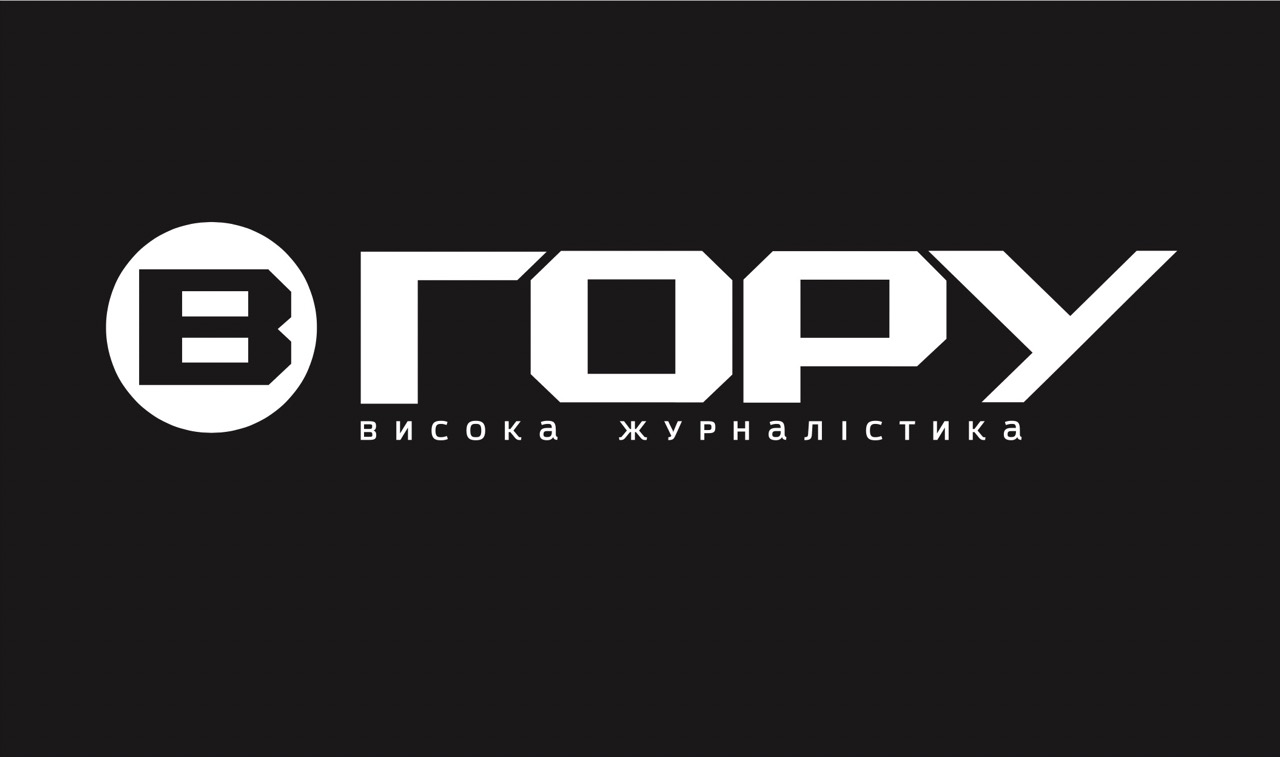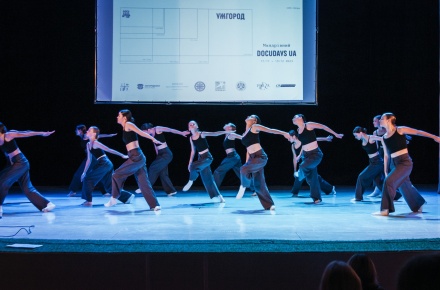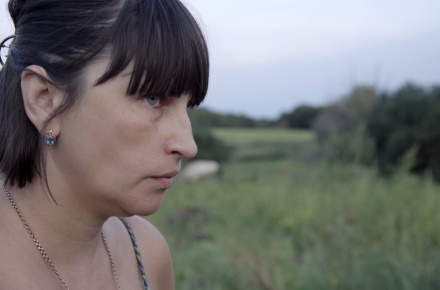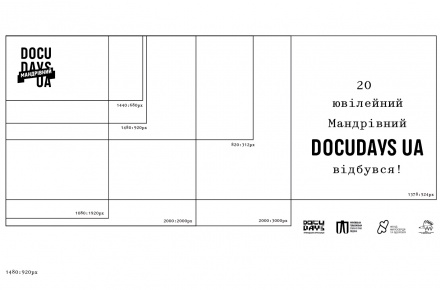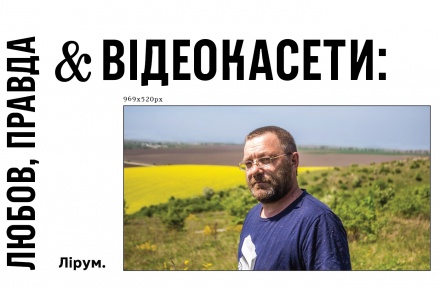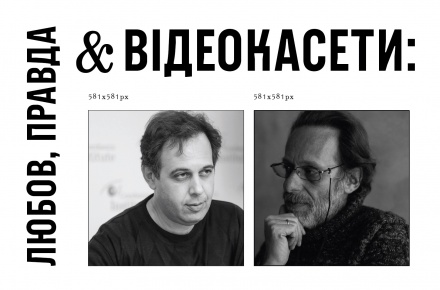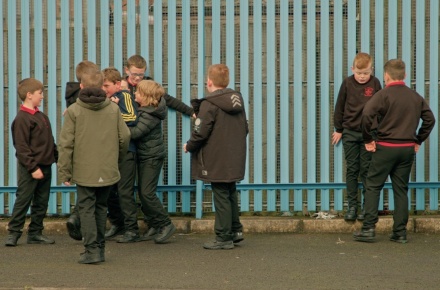Paying homage to memory: Seeds of Hunger: Ukraine 1933 concludes the Travelling Docudays UA in Lviv Region
Paying homage to memory: Seeds of Hunger: Ukraine 1933 concludes the Travelling Docudays UA in Lviv Region
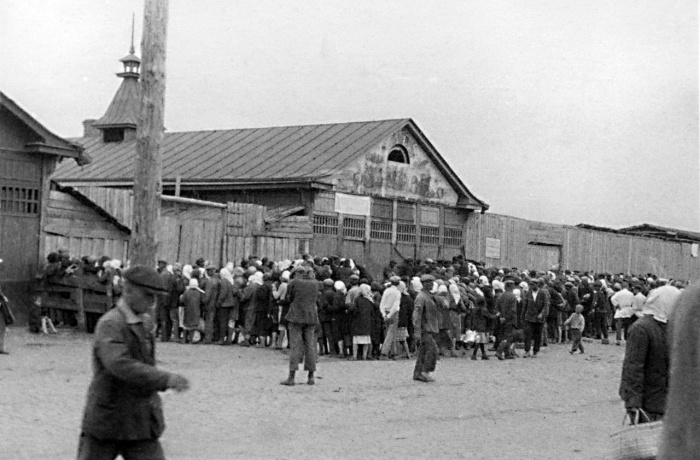
The final screening of this year’s Travelling Docudays UA in Lviv took place in the revitalised Art Library in Shota Rustaveli Street. In the early 20th century Secession-style building, among art publications and restored wooden furniture, Lviv residents and guests of the city watched the documentary and discussed the preservation of memory.
Nina Khoma, the regional coordinator of Docudays UA in the Lviv Region, noted: “Art can be different—today we had a unique opportunity to bring library and film art together. It is a synergy of wisdom and talents of different people from different parts of the world.”
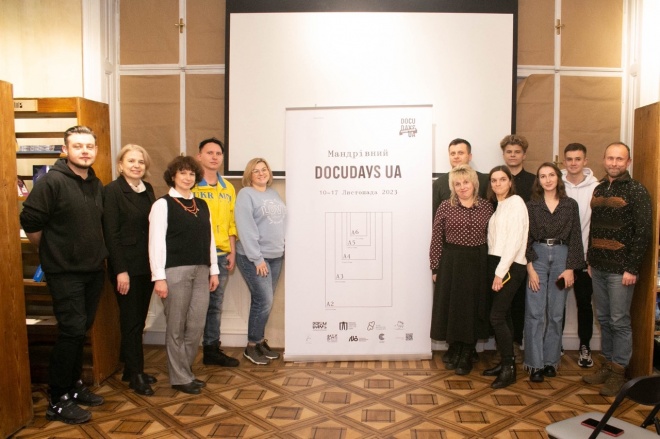
Travelling Docudays UA in the Lviv Region
The Travelling Docudays UA in the Lviv Region concluded with the film Seeds of Hunger: Ukraine 1933 by the French filmmaker Guillaume Ribot. In the film, a young Welsh journalist, Gareth Jones, reaches Ukraine clandestinely in 1933. When he heard about the horrifying famine in Ukrainian villages, he decided to visit them despite the strict prohibition and a risk to his own life. What Gareth Jones saw will later be reflected in his journal, which served as the basis for the film. It is a film about the history of the Ukrainian nation, about injustice and brutal truth which is impossible to conceal.
Guillaume Ribot got the idea to make a film about the Holodomor in Ukraine while working on a photo project about the mass shootings of Jews during the Second World War. He visited Ukraine many times during that period. One time, when he filmed at a village in the Vinnytsia Region, a local resident asked him if he knew that ten years before the beginning of the Second World War millions of Ukrainians had lived through a horrible famine.
Until that moment, the filmmaker did not know about the Holodomor, just like most other French people, in his opinion. The film was shown on French television, and soon the French Senate recognised the Holodomor of 1932–1933 as a genocide of the Ukrainian people.
The film screening during the Travelling Docudays UA was organised in partnership with the Lviv Municipal Library in the revitalised space of the Art Library.
The focus of this year’s festival is the Image of the Future. Nina Khoma comments: “We all have different ideas of the future, different aspirations, but we are all united in the value of human dignity and the aspiration for the corresponding standard of living. We watch talented films from all over the world, we analyse what we see, we get inspired by the protagonists or, on the contrary, realise that it is not our way. We strive for victory and look for more ways to support our country, and our defenders. We come together and support one another even in the darkest of times, and this is the most important thing.”
The image of the future, as well as the image of the past and their mutual connections, was the subject of the conversation between Khrystyna Hataliak, the screening moderator, member of NGO Patronus and tutor, and Vasyl Kmet, a historian, archivist, and director of the Lviv Municipal Library.
Vasyl Kmet noted that the fact that Ukrainians turn to the past is a very important step, since it is impossible to take the next step without making sense of and articulating the previous one. It is a significant stage for Ukraine which happens through conceptualising, discussing, and researching our past. However, added Vasyl Kmet, it is also an important step for the world. It is important that the film was made by a French director, because it is difficult to communicate and explain information about the Holodomor in the French and Francophone world due to the different cultural context.
“Ukrainians are a nation that has lived through horrifying genocides as the majority of the population. In the situation of pressure from the authorities, they had no chance to reach the outside world. So this is not only about famine and physical extermination, but also about intellectual, spiritual and generational extermination. Another very important factor which we should not forget is that we are talking about the philosophy of fear. The philosophy of fear which affects generations and actualises the core instinct of any living organism: survive at any cost,” says Vasyl Kmet.
The conversation about generational trauma developed into a conversation about family histories, particularly about the families of the guests present in the room who were affected by the atrocities. Their family members who remembered the horrible events of the past, namely the Holodomor, deportations, and other traumas that resulted from the actions of the Soviet government, all had the same defence mechanism: silence.
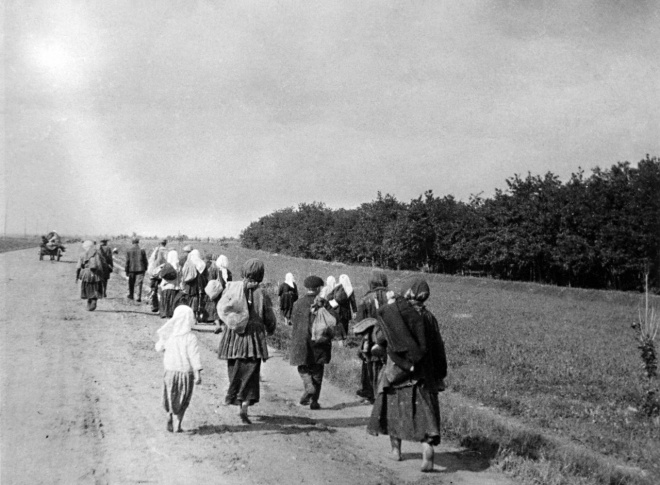
A still from Seeds of Hunger: Ukraine 1933
“My grandmother only started to talk about the Holodomor when he developed memory problems, that is, when she was already 90 years old and she remembered what happened 50 years ago better than what happened today. These people suppressed, swiped away, tried to avoid everything traumatic. So there were gaps in the memory of entire generations, their children and grandchildren who learned about it only later from books and tried, skipping a generation, to confirm, verify or find any kind of answer to these questions,” recalls Vasyl Kmet.
The image of the past could not but interweave with the image of the present. The visitors compared what happened 90 years ago and the events of today. However, the audience at the event noted that today we have more means, experience and understanding to avoid finding ourselves in the position of victims. Vasyl Kmet comments: “Today we are an agent of international law. We have an independent state. Now we have a system of communication which allows each of us to be a carrier of messages and a creator of cultural diplomacy. Each of us can actually play an important role in shaping contemporary history. And this is no longer the mindset of a victim, this is a mindset of a participant of the process.”
The discussion reached a collective conclusion: if we do not make sense of and process the traumatic experience of the events of the Holodomor, which is an element of our minds, we will not be able to move on.
According to Vasyl Kmet, it is wrong to live in the past, but we still need memory to make sense of who we are today, so that society and every individual can define and identify themselves in the present: “We are talking about this tragedy not to compare ourselves with the tragedies of the past. It is important for us to talk with ourselves frankly and give answers to the questions that concern us. We can look for answers in our history to questions about language in today’s Ukraine, about the economic situation of our country, about demographics, sociopolitical status, geopolitics. Finally, about the civilizational choice. The prominent and heroic pages of our history which we view as positive are the results of our actions and of paying homage to memory.
Paying homage to memory can take different forms. One of them is watching documentaries such as Seeds of Hunger: Ukraine 1933, which helps us explore and make sense of who we are, who we were, and who we will be.
Author: Vira Karpinska.
Header photo: a still from Seeds of Hunger: Ukraine 1933.
The 20th Travelling Docudays UA is held with the support of the Embassy of Sweden in Ukraine, Embassy of Switzerland in Ukraine, US Embassy in Ukraine. The opinions, conclusions or recommendations do not necessarily reflect the views of the governments, charities, or companies of these countries. Responsibility for the contents of the material lies solely on its authors.


